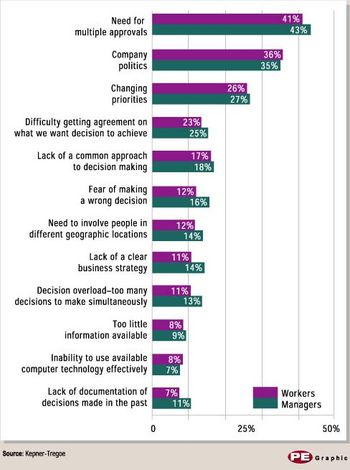When Kimberly Farrell, currently president of Unlimited Performance, a training consultation company based in Highland Park, IL, was asked by the National Society of Pharmaceutical Sales Trainers – now the Society of Pharmaceutical and Biotech Trainers - to put together a workshop for the society's 2000 meeting, she immediately designed a questionnaire for top female executives, networked to identify top talent, and wrote and called female executives to interview them. The answers to her queries were presented in the workshop. "The turnout and response were so positive," said Farrell, "I was asked by the board of SPBT to facilitate a similar workshop in 2001. I redesigned the workshop to include a live panel of three top industry vice presidents to speak to our membership about career strategies, challenges, successes and insights."



